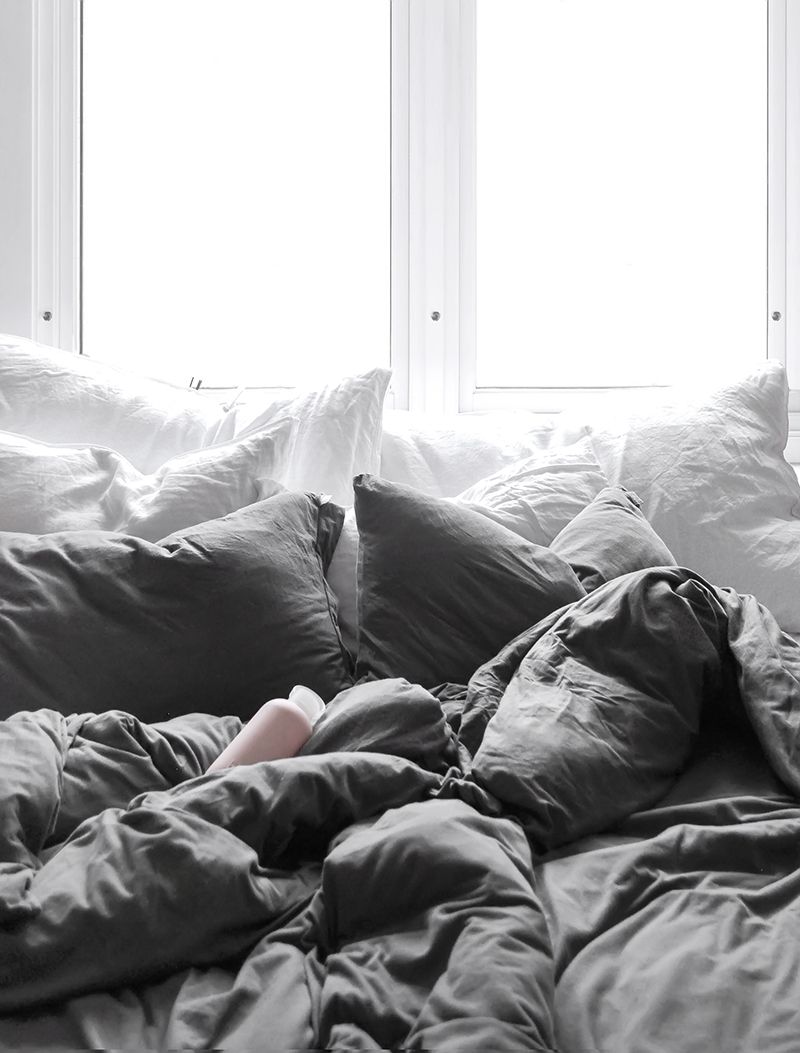Sleep is a significant part of our lives. We spend about a third of our days asleep, yet, how much do we really know about it, other than the magical eight hours? We’re hoping to shed a little more light on the importance of sleep.
Lack of sleep is the cause of so many things, such as general fatigue, but it can also cause a lack of motivation, moodiness, a decreased sex drive, a weakened immune system, weight gain, impaired brain activity, as well as a variety of other health problems.
There are some minor lifestyle changes that can help with all of that!
Use naps effectively.
There are so many positives to napping during the day, so long as you take care with how, when, and where you doze off.
While not everyone can fall asleep during the day, napping is linked to relaxation, reduced stress, increased alertness, improved mood, improved reaction time, lower blood pressure, and better memory.
10- 20 minute power naps are best for alertness and a quick fix for fatigue, 60 minutes are great for improved memories (though, you will have to face minor sleep inertia), and 90 minutes are great for a full sleep cycle, which helps with creativity and the ability to learn.
The only length of time to be cautioned against is the 30-minute nap. This time period has you dipping into your deep sleep cycle, which trying to wake from causes sleep inertia, which is heavy grogginess, making you feel disoriented, dizzy, and unable to function properly.
The recommended best napping time is just before lunchtime to 3 pm, since napping later than that has been linked to nighttime sleep issues. Be sure to nap in a quiet, dark, and restful environment to make the most of your daytime sleeping!
Keep an eye on how much you are napping, since frequent naps or drowsiness can be linked to other health issues. Check in with your doctor if you notice any major sleep changes, or if you’re having trouble falling asleep at night.
Tips for quality night-time sleep.
People often think getting six hours of sleep is enough, but often, that hour or two of sleep deprivation can lead to a sleep debt that will affect their ability to function properly. The average adult needs between 7-9 hours of sleep a night. While it may be appropriate to have somewhere in the 6-11 hour range, it’s only thought that 3-5% of the population can function properly on six hours of sleep.
Keep in mind that sleep deprivation can come in a handful of forms, from relying heavily on an alarm clock and the snooze button to feeling sluggish in the afternoon or in meetings, if driving or heavy meals make you feel drowsy if you regularly fall asleep while watching tv, or even if you fall asleep in less than five minutes after crawling into bed.
Sleep debt is real and while there are no quick fixes, there are ways to change your habits to gradually restore healthy sleeping patterns!
Exercise during the day.
While high-intensity exercise immediately before bed can make it difficult to fall asleep, be sure to get some exercise in during the day. That being said, taking some time for yourself to do some wind-down stretches or yoga at night can help to relax your muscles and make it easier to fall asleep!
Focus on the good things before bed.
You’ve heard the adage “don’t go to bed angry”? That’s because whatever you focus on before sleep gets reinforced in your brain.
When you focus on what went wrong or what upset you, you will only be more upset in the morning. Instead, think about all the good things that happened that day. You can write them down if you enjoy journaling. Otherwise, talk about the little, wonderful things with your partner, or even just reflect on them when brushing your teeth.
Prepare for bed early.
How many of us are guilty of realizing bedtime is in ten minutes, and frantically trying to leap into bed in time to hopefully get the right amount of sleep? In reality, your brain is a complicated organ that requires about two hours to calm down before bed.
Gradually reducing electronics, reading a book, meditating, gentle stretching, or planning for tomorrow are all good ideas to prepare yourself for a good night’s sleep.
Dim the lights- especially the blue ones!
Avoid lights on the blue spectrum, including electronics, before sleeping. Those keep your mind awake and alert and affect sleep quality.
Avoid caffeine in the afternoon or evening.
Caffeine before bed makes it harder to fall asleep and it can disturb the quality of sleep in the first half of the night, and alcohol can ruin the second half of a night of sleep, as that’s when it starts to be processed by the body and acts like a stimulant.
What happens when you sleep- and why it is important?
The impact and importance of sleep are much more than just feeling rested. In an average night of 7-9 hours of sleep, your body will go through four to six sleep cycles.
In the first 5-10 minutes of falling asleep, you can be easily woken. This is where you begin to feel relaxed, and your body starts to slow down and prepares for a deeper sleep. The light sleep stage is also believed to be when memories are stored in your subconscious.
Once you reach the thirty-minute mark, this is when your body starts to go deeper into sleep, and you become difficult to wake. This is also why naps are recommended to be shorter than thirty minutes in length, preventing sleep inertia. This deep sleep stage is where your body produces the hormones it needs, as well as where it repairs muscles and tissues throughout the body. If light sleep is good for your mind, deep sleep is good for your body.
After your body passes through the deep stages of sleep, it passes into REM (Rapid Eye Movement). This is when you begin to dream, what helps you to learn, and when your body has similar responses to being awake, such as a faster heart rate and shallower breathing. Your sleep will eventually lighten again until it cycles through to REM sleep again, and a full cycle takes about 90-120 minutes.
The environment is important in sleep quality.
Environment plays a large part in how well you sleep. Studies show that the best room temperatures for sleeping conditions range from 65- 72ºF. It is also important to sleep somewhere with little to no light. Think like sleeping in a cave, but someplace cozy instead.
Rearrange your room.
Try moving your bed to a different place in your room. Placement can subconsciously affect how relaxing you perceive a room to be.
Drink a non-caffeinated beverage.
Water helps with hydration, warm milk helps to calm your body and mind down, or a nice herbal tea to soothe your body and quiet your mind. Just be conscious of how much you drink, as too much can make you head for the bathroom before night.
Listen to soothing sounds.
Turn on a meditation or hypnosis recording, quiet music, or white noise. This allows your mind to focus on something, while the calming, repetitive nature lulls you to sleep.
Try a weighted blanket.
These come in a variety of weights and can help reduce anxiety and make you calm and feel like you’re hugged as you drift off to sleep.
If none of these suggestions work, please talk to your physician. There may be an underlying health issue that your sleep is warning you about. If you want to learn even more, check out Matthew Walker’s book Why We Sleep.
We hope that this will help you sleep better. If any of these tips resonate with you, please reach out and let us know! We’d love to know what helps you to sleep best!
Any links included are for reference, additional information, or entertainment value only, without monetary compensation. Contact us on social media or at [email protected]. Photos courtesy of Unsplash.
This article is not intended to act as or replace medical advice. Please talk to your healthcare practitioner if you have any concerns.
Written by Kayla Willsey
Updated March 17, 2023

